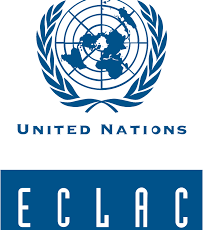
Experts from government, academia, non-governmental and civil society organizations met virtually on 19 October, to discuss the findings and recommendations contained in a draft ECLAC study, entitled “The Ageing Caribbean: 20 Years of the Madrid International Plan of Action on Ageing (MIPAA).”
Convened by ECLAC Caribbean, the meeting also examined the status of implementation of the MIPAA in the Caribbean, 20 years after its adoption.
Population ageing is affecting all Caribbean countries and territories and is an important focus of attention for policymakers. It has important implications for pensions and social welfare policy, the workplace, population health, and the demand for care services. Moreover, demographic ageing calls for us to re-think our assumptions about the contribution of older persons to all aspects of our society.
In the Caribbean (as in Latin America), the pace of demographic change is accelerating. In 2000, for every 100 persons of working age (15-64) in the Caribbean, there were 10 persons aged 65 and over. By 2020, that number had increased to 14. By 2030, it will have increased to 20, and by 2045 it will be 28. Between 2020 and 2045, the number of persons aged 65 and over in the Caribbean will double while the size of the working-age population will remain roughly unchanged.
Population ageing is relatively more advanced in Barbados and many of ECLAC’s Associate member countries, including Curaçao, Martinique, and the United States Virgin Islands, while it is less advanced in Antigua and Barbuda, Belize, Grenada, Guyana, Saint Vincent and the Grenadines, and Suriname.
In this context, ECLAC’s study analyses progress in the development of policies on ageing and programmes for older persons. This includes the strengthening of Caribbean pension systems, health and long-term care services, and policies to address issues such as isolation, loneliness, and elder abuse.
In opening the EGM, ECLAC Caribbean Director, Diane Quarless, noted that the ageing process affects all countries. She described it as being more advanced in some than others, but said that all countries are seeing increases in the number of older persons, compared with much lower growth or declines in the working-age population.
“Population ageing represents an opportunity to fully utilize the skills, creativity, knowledge, and experience of older persons. This will require changing attitudes towards older persons. It will require tackling age discrimination, a more flexible approach to retirement, more support for those with health conditions or disabilities, and stronger protections against abuse and neglect,” Quarless stated.
The study makes several recommendations, among them, to ensure that policies and laws for ageing and older persons are fit for purpose and to consider the need for new, updated or supplementary policies; renewal of links between governments and organizations of older persons, and expanded opportunities for older persons to participate in decision-making; ensuring that non-contributory age pensions complement other pillars of the pension system and guarantee a minimum pension income to all older persons.
The meeting forms part of the preparations for the regional and global MIPAA+20 reviews. The regional review will take place at the Regional Intergovernmental Conference on Ageing and the Rights of Older Persons in Santiago, Chile, in December 2022, with the global review taking place in 2023 within the framework of the 61st session of the United Nations Commission for Social Development.

Disclaimer: The comments posted do not necessarily reflect the views of DominicaNewsOnline.com and its parent company or any individual staff member. All comments are posted subject to approval by DominicaNewsOnline.com. We never censor based on political or ideological points of view, but we do try to maintain a sensible balance between free speech and responsible moderating.
We will delete comments that:
See our full comment/user policy/agreement.